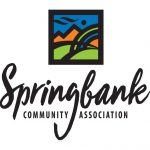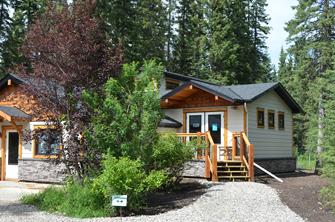HAPPY NEW YEAR COMMUNITY!
I hope you had a wonderful holiday season with some time to relax and rejuvenate after 2023. It always seems like a whirlwind of activity and then BAM, here we are in 2024! Now is often the time we consider some New Year’s resolutions. What do I want to continue doing? What can I do better? Or, perhaps, what new challenge can I take on this year?
According to the Statistic Brain Research Institute, more than 40% of people give up on their New Year’s resolutions after only one month! The Toronto Star highlighted statistics on the length of time Canadians kept their resolutions. For example, 19% gave up just after 24 hours, 15% in one week, 52% in one month and 19% in one year. Why such a high failure rate? According to a Carleton University professor of psychology, “we are culturally primed to procrastinate by making a resolution for a future date, instead of committing now”. Why wait for an arbitrary date in the future when you can commit to positive changes now?
Variety is important when looking at the year ahead. Your goals can range from specific targets to reach, personal growth goals, professional relationship building or living a more mindful life. Sharing your goals with others and writing them down allows for accountability and a higher success rate. Here are some suggestions for making realistic goals for 2024:
Establish a baseline. If getting in better physical shape is on your list, jumping on and off the scale can be frustrating and not a true indication of your progress. Take a measurement of your waistline instead. Exercising and eating healthy may help you build muscle and shed fat. This may not be reflected on the scale but will definitely show on your waistline. Wrap a tape measure around your waist, in line with your belly button. Take a relaxed exhale and don’t squeeze the tape too tight! Measure yourself every 3-4 weeks. An attainable weight loss goal may be 1-2 lbs/week.
If increasing physical activity is one of your goals, use a specific activity to track your progress. Use time, distance, or repetitions as a guide. How far can you walk or jog? How many squats or push ups can you do? Use the Rate of Perceived Exertion Scale (RPE). The RPE scale is used to measure the intensity of an exercise and ranges from 0-10 (nothing at all – to maximal effort). This is a subjective measure of your exercise intensity. For example, a 5-6/10 would be considered moderate activity where you are breathing heavily and can hold a short conversation. This is a measurable way to help you evaluate your progress over time.
Keep your goals attainable, realistic, and timely. Keep a long-term goal in mind, but pick a short term timeline so you have successes along the way. They say it takes 30 days to create a habit, so be patient with yourself and review your progress every 4-6 weeks.
Helping you get back to activities, sports and life is a large part of what we do at Bragg Creek Physiotherapy. As movement specialists, our goal is to help you gain function, maintain independence, prevent future injuries, and maximize your physical performance. Our Physical Therapists, Massage Therapist, Athletic Therapist and Personal Trainer are all available to help you start your year off right. Let Bragg Creek Physiotherapy join your journey this year and enhance your quality of life and health. Wishing this community a happy and adventurous 2024!
Jennifer Gordon (BSc.PT, BA Kin, AFCI)
Physiotherapist – Bragg Creek Physiotherapy
www.braggcreekphysio.com

























